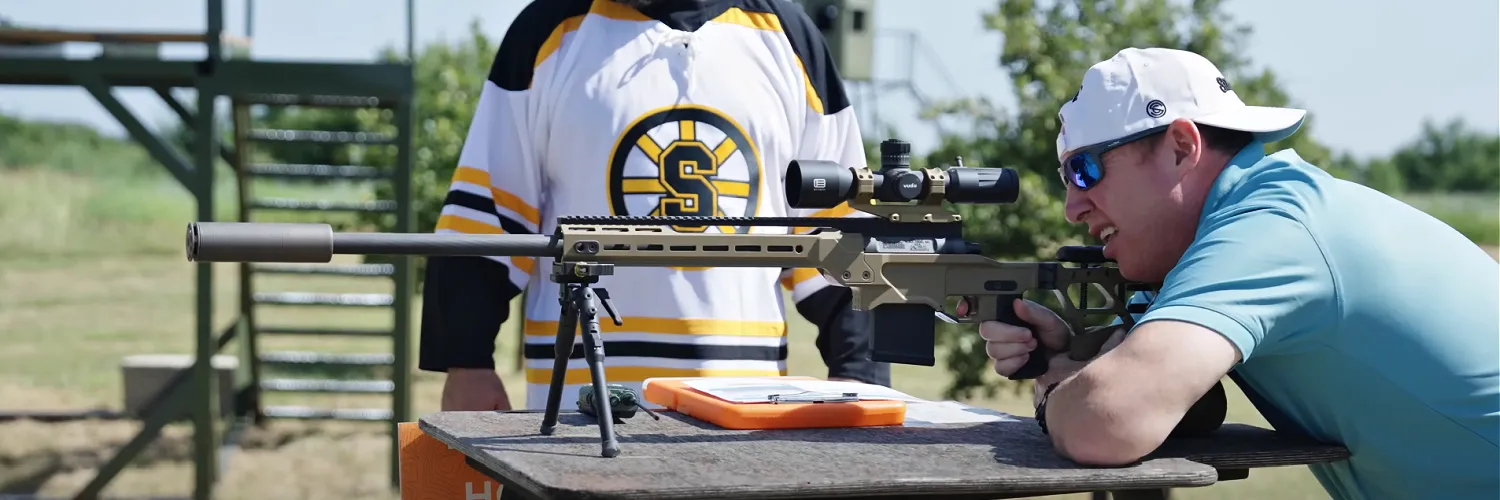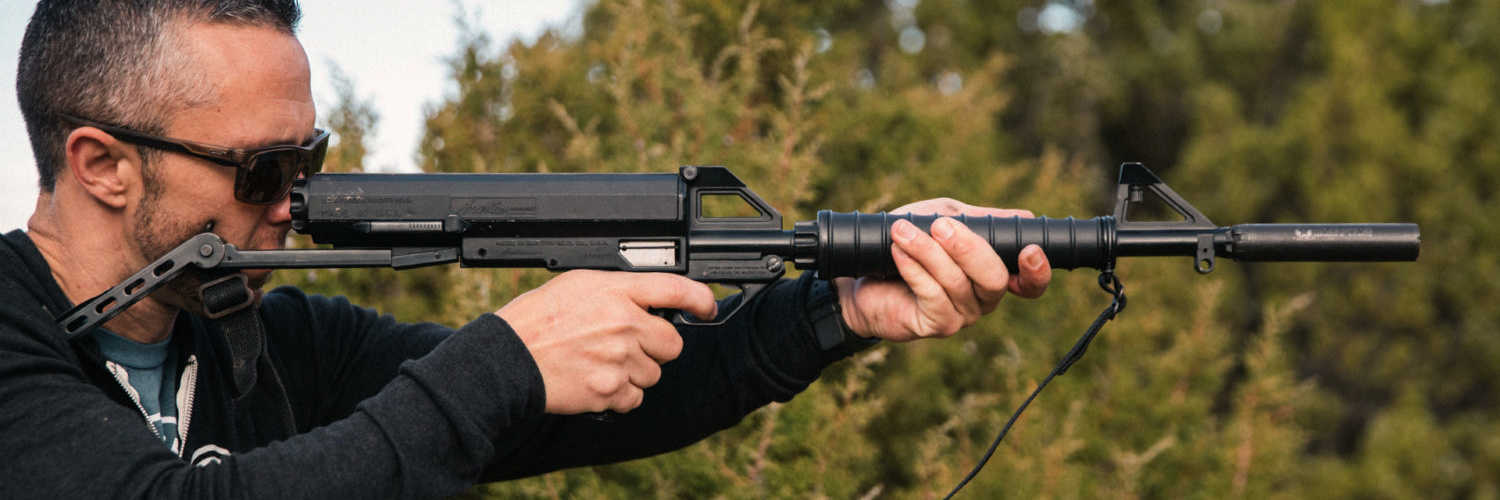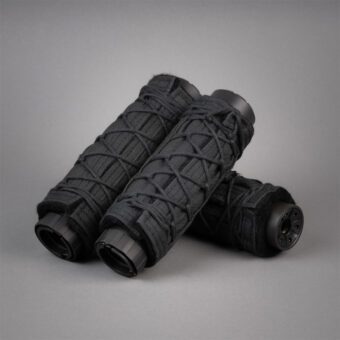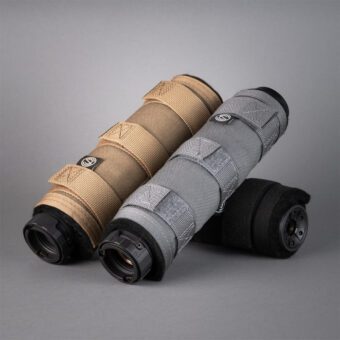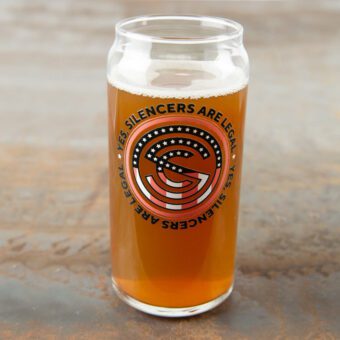Home / All About Silencers / The Myths Surrounding Suppressors
The Myths Surrounding Suppressors
Home / All About Silencers / The Myths Surrounding Suppressors
Silencing Myths: Video Game Misconceptions with Alanah Pearce
Effective silencers have been available for more than a century now, yet they remain somewhat shrouded in controversy. In this article, we’ll break down some of the common suppressor myths and get to the real truth behind them.
A Historical Perspective: The Origins of Suppressors
In order to get the full perspective on these suppressor myths, we must start at the very beginning. In 1902, Hiram Percy Maxim filed the first patent for a commercially available silencer. It was marketed as a “Silent Firearm,” which set the stage for one of the most persistent myths.
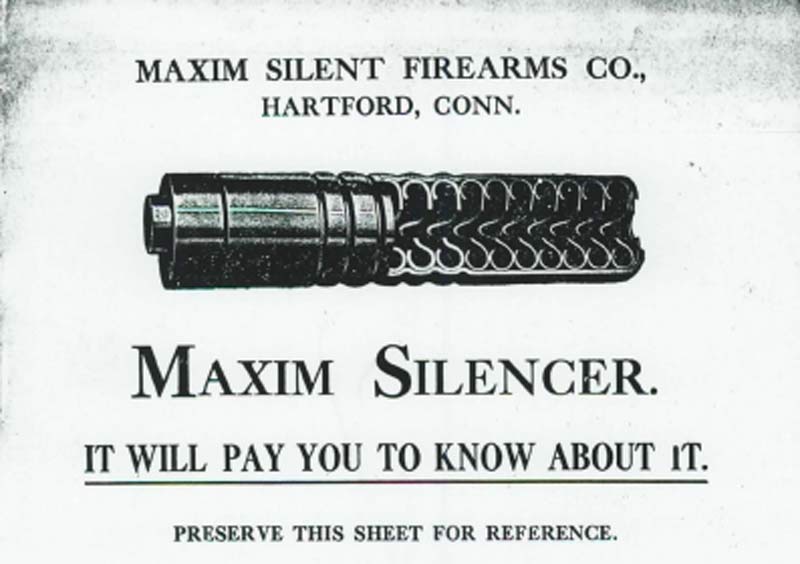
Myth 1: Silencers are Hollywood Quiet
One of the most common myths is that silencers make guns whisper quiet. This myth, fueled by Hollywood, suggests that even high-powered rifle rounds are silent when suppressed. However, this is far from reality.
When you call something a “Silent Firearm,” you set a precedent. What makes it silent? Why the Silencer at the end of the barrel, of course. The word “silencer” itself suggests complete sound elimination — an expectation that Hollywood has taken to the extreme. Silencers in cinematic tradition are whisper quiet — even when the plot line calls on shooters to be shooting high-powered rifle rounds.
This perception of silent performance, then, became the expectation of performance. led to an exaggerated fear that suppressors could enable undetectable violence, which contributed to the inclusion of suppressors in the National Firearms Act of 1934. The concern was that criminals would carry out silent shootings without alerting anyone nearby.
The reality is more complex.
The Truth About Suppressor Noise Levels
While a suppressor reduces noise, it doesn’t eliminate it. The term “suppressor” is technically more accurate than “silencer.” Suppressors reduce noise to varying degrees, depending on barrel length, caliber, and other factors. Even with a suppressor, hypersonic rounds still produce a crack when they break the sound barrier.
Rimfire rounds are a good exapmle here. They can be tricky. A subsonic .22 LR might actually sound quieter than a faster .22 LR, which can produce a noticeable sonic crack. And with a .22 Magnum, that crack will definitely still be there, even when suppressed.
I’ve fired .22 short rounds through a long-barreled bolt-action rifle with a SilencerCo Sparrow, and while it wasn’t completely silent, the noise was so minimal that the sound of my typing right now is louder. Shooting suppressed subsonic rimfire on steel is especially satisfying—the loudest noise you’ll hear is the ping of the round hitting the target.
Rimfire rounds are tricky though, if you were to fire a subsonic .22LR round through the same barrel, it might be louder. A fast .22 LR may create a sonic crack. And a .22 Magnum will for sure have that high crack, even when suppressed. For example, I have shot .22 short through a long barrel with a bolt-action and a SilencerCo Sparrow. While the combination isn’t completely silent, the noise was so minimal that the sound of my typing right now is louder. Shooting suppressed subsonic rimfire on steel targets is especially gratifying, as the ping-ping of the shots hitting is the loudest noise.
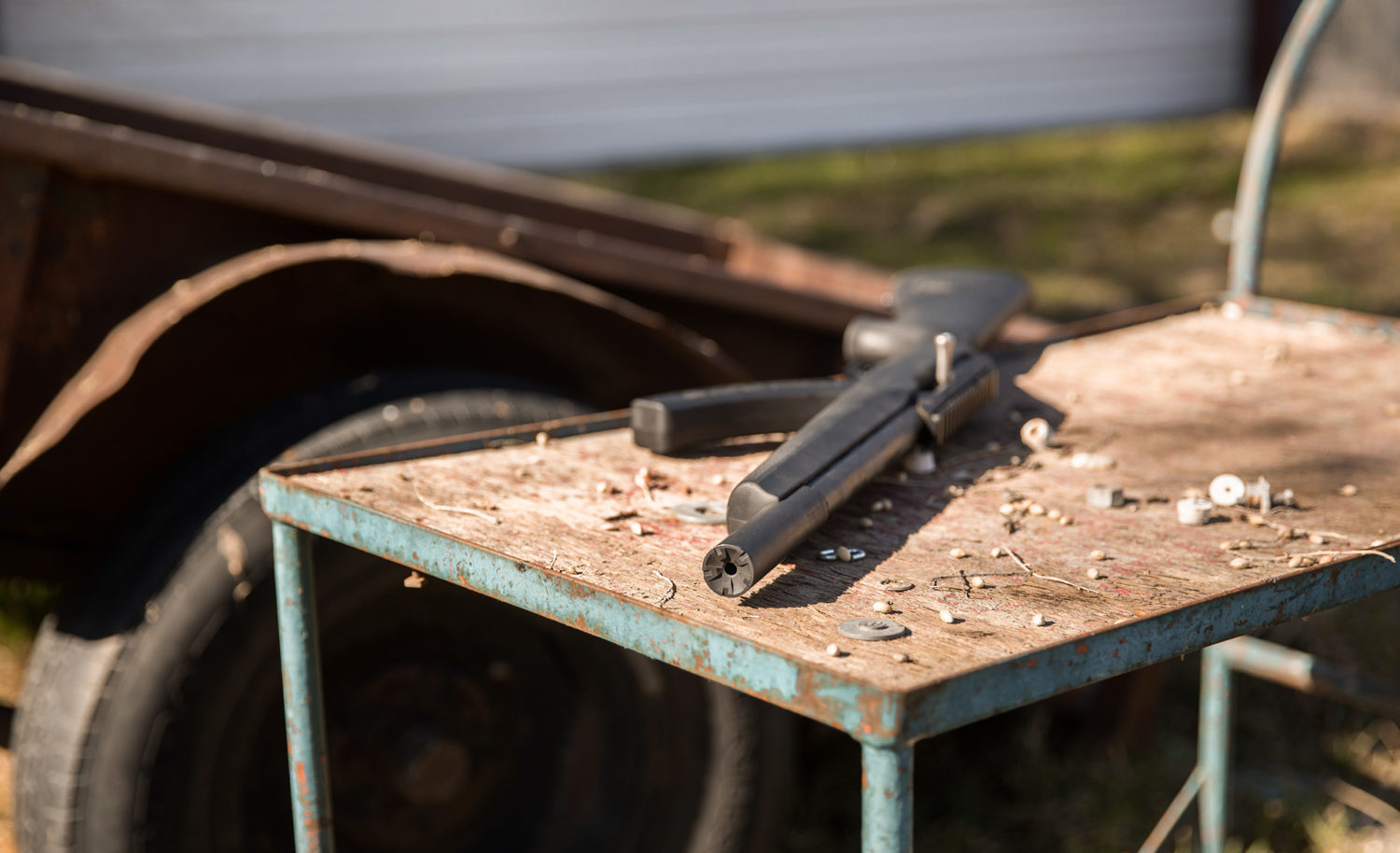
Myth 2: Silencers Affect Bullet Velocity
Another widespread belief is that suppressors affect bullet velocity. You’ll often hear two claims: silencers slow down bullets or, conversely, that silencers speed them up. The reality lies somewhere in between, but the effects are minimal.
Do Suppressors Slow Bullets Down?
The idea that suppressors slow down bullets is rooted in the belief that the device disrupts the gases behind the bullet, which could theoretically reduce velocity. While this seems plausible, in practice, any reduction in velocity is minimal and largely unnoticeable, especially with high-caliber rounds.
Do Suppressors Speed Bullets Up?
On the other hand, there’s the belief that adding a suppressor can increase bullet velocity. The reasoning is that the extra barrel length provides more space for expanding gases to continue pushing the bullet, thereby increasing its speed. This is technically possible, but the effect is negligible for most rounds.
What the Data Shows
Testing with chronographs shows that any impact on bullet velocity — whether positive or negative — is marginal. For instance, with lightweight rounds like .22 rimfire, a suppressor can slightly increase velocity, sometimes by about 20 feet per second. For rounds like .223, a suppressor might reduce velocity by less than 10 feet per second.
These variations are well within the margin of error for most factory ammunition. Environmental factors like temperature and humidity can cause wider swings than the suppressor itself. In short, while suppressors may technically affect velocity, the difference is negligible and unlikely to impact performance in any meaningful way.
Practical Impact on Shooting
While changes in velocity are minimal, any alteration can affect point of impact, especially at longer ranges. Most shooters won’t notice much difference in close-range accuracy, but for precision shooting, it’s essential to sight in your rifle with the suppressor attached.
So there’s actually truth behind this myth. If you were insufferably pedantic, this might allow you to win a Pyrrhic victory in some heated bar room debate and further isolate you from your peers.
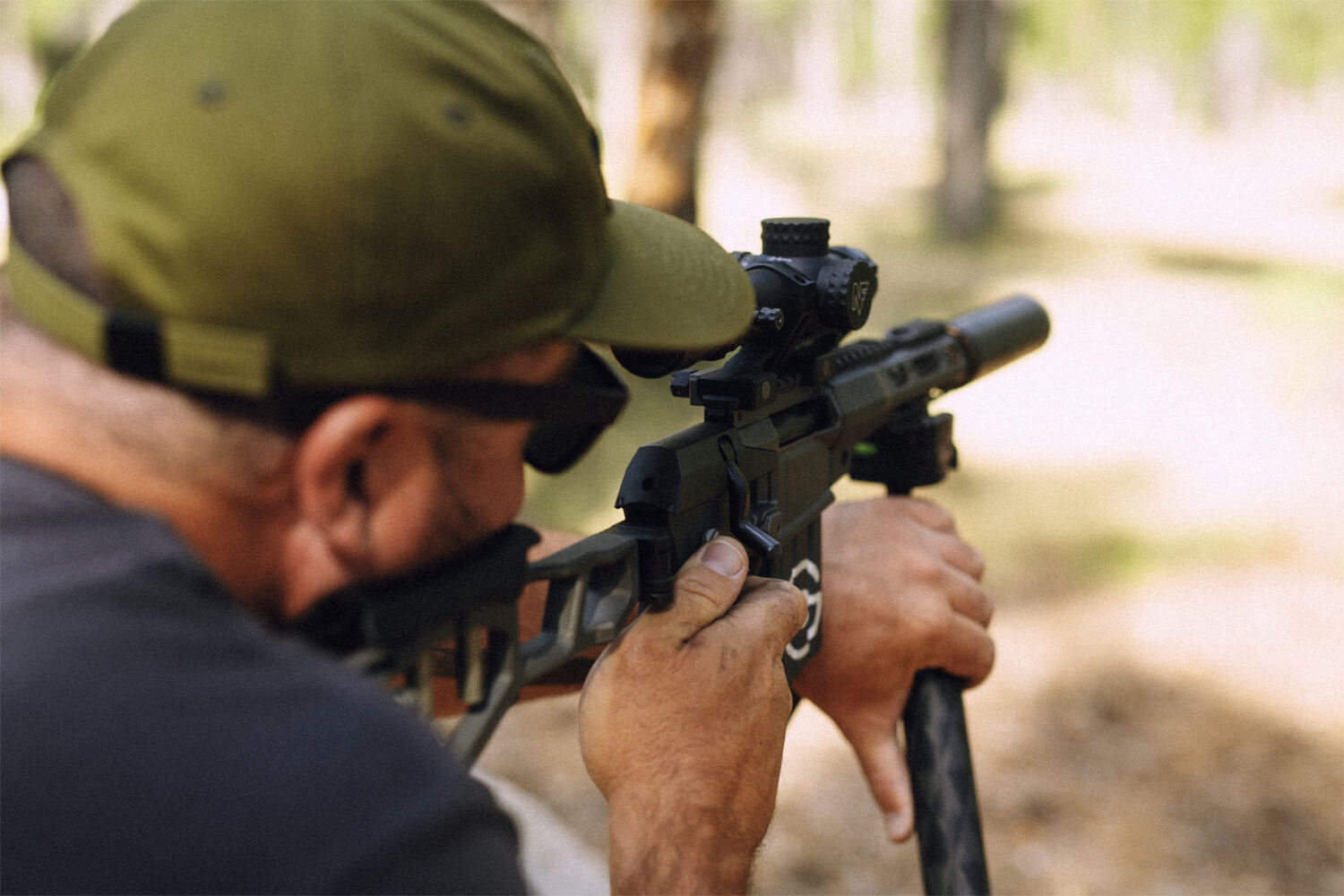
Myth 3: Silencers Impact Accuracy
Some believe that attaching a suppressor will negatively impact a gun’s accuracy. While a suppressor does change barrel harmonics, the effect on accuracy is minimal.
Barrel Harmonics and Suppressor Influence
A suppressor, even the light ones like the Scythe TI, changes barrel harmonics. There’s a wavelike movement in the barrel when a round is fired — imperceptible to the naked eye. These harmonics are highly consistent, which is why guns are capable of delivering tight, repeatable groupings.
When a barrel heats up, most shooters will notice their groups spread out. This happens because cold steel moves differently than hot steel, altering the harmonics. Similarly, adding weight to the end of a barrel — such as a suppressor — affects the point of impact. However, these changes are subtle and measurable but not significant enough to dramatically affect accuracy.
Sight in With the Suppressor
For a rifle like a .308 bolt-action capable of sub-MOA accuracy without a suppressor, it will still group just as well with one attached. The key is to always sight in with the suppressor mounted, as it will slightly shift the point of impact due to the added weight.
The Real Benefit: Noise and Recoil Reduction
Here’s the real benefit for questions of accuracy; suppressors cut the noise and reduce felt recoil. For many of us, when the anticipation of the report and the kick are reduced, having less noise and less recoil allow us to focus more on mechanics and shot placement improves.
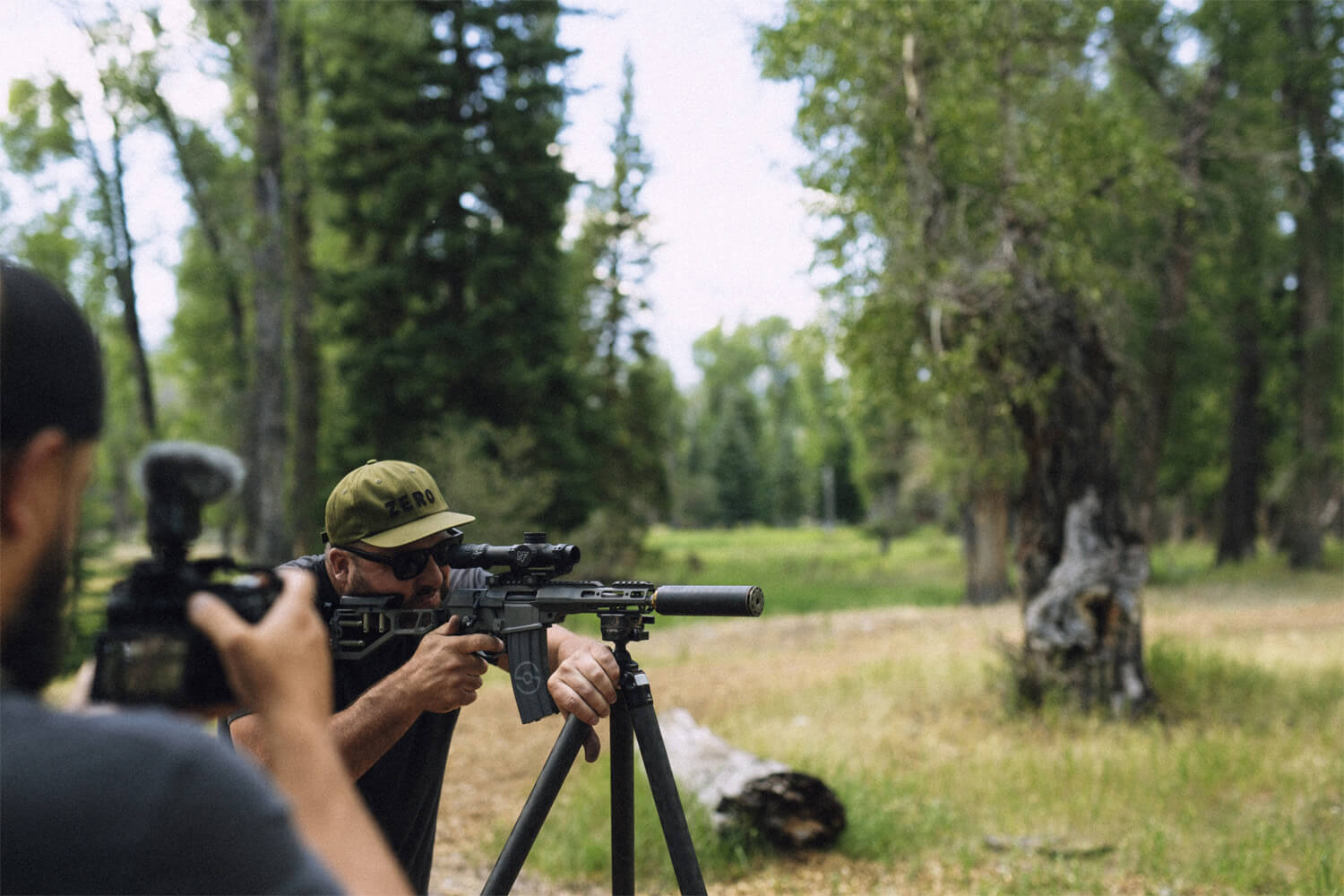
Myth 4: Silencers Are Illegal
A persistent myth is that silencers are illegal. In reality, suppressors are legal in most states, though they are regulated under the National Firearms Act (NFA).
The Truth About Suppressor Legality
Silencers are legal.® There we go; that one was easy to dispel.
Understating the origin of this misconception, though, is more complicated. Following the NFA’s passage in 1934, suppressors faced more stringent regulations than most firearms, but that doesn’t mean they’re illegal for those who comply with the law. Despite this, the misconception persists, prompting companies like SilencerCo to prioritize public education on the topic.
Who Can Legally Own a Suppressor?
Suppressors are legal for civilians in 42 states. To own one, you must meet the following criteria:
- Reside in one of the states where suppressor ownership is allowed
- Be a U.S. resident
- Be legally eligible to purchase a firearm
- Pass a BATFE background check
- Be at least 21 years old to purchase from a dealer
- Be at least 18 years old to purchase from another citizen
If you meet these requirements, you’re good to go.
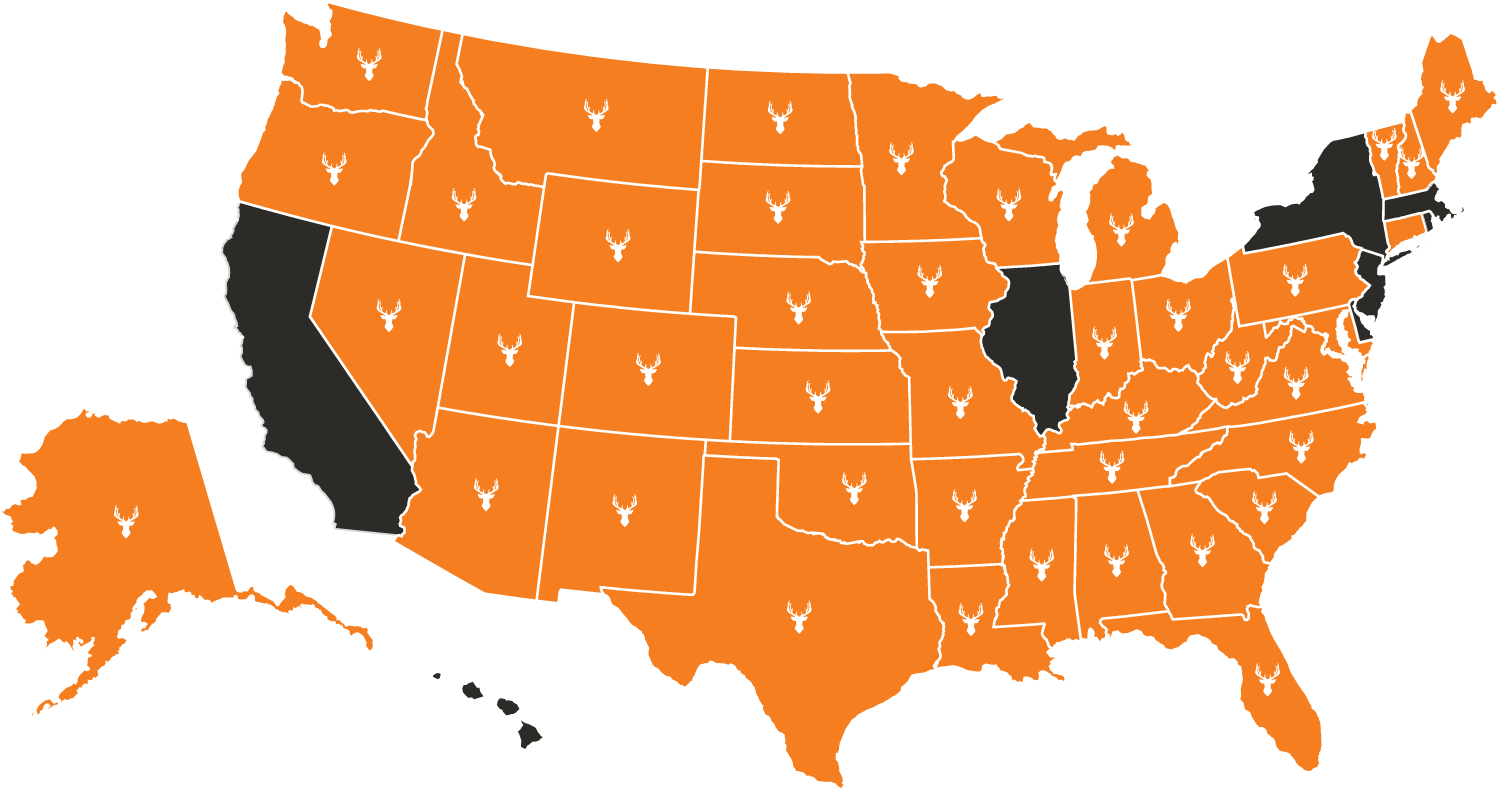
Myth 5: Silencers Are Only for Military and Police
It’s commonly thought that suppressors are exclusively for military or law enforcement use. In reality, many civilians, including hunters, benefit from using suppressors.
The Benefits of Suppressors for Civilians
Suppressors offer numerous advantages, with noise reduction at the top of the list. This is especially important for those who work in teams that depend on situational awareness and communication, making suppressors ideally suited for tactical use. However, civilians who value hearing protection also benefit from shooting suppressed.
But anyone who values their hearing may benefit from shooting suppressed. Take hunters, for example. Hunting whitetail suppressed creates much less of a disturbance in the solitude of a quiet fall morning. It’s also better for your dog’s hearing when upland game hunting, and suppressors can help hunters remain undetected when pursuing hogs, allowing for follow-up shots after the first pull of the trigger. I could go on.
It’s not just for tactical professionals and hunters, though. Working on the range is easier. Plinking is more fun. Teaching kids or anyone who might be noise-sensitive becomes more effective. I am, admittedly, biased, but I’d like to see most guns suppressed.
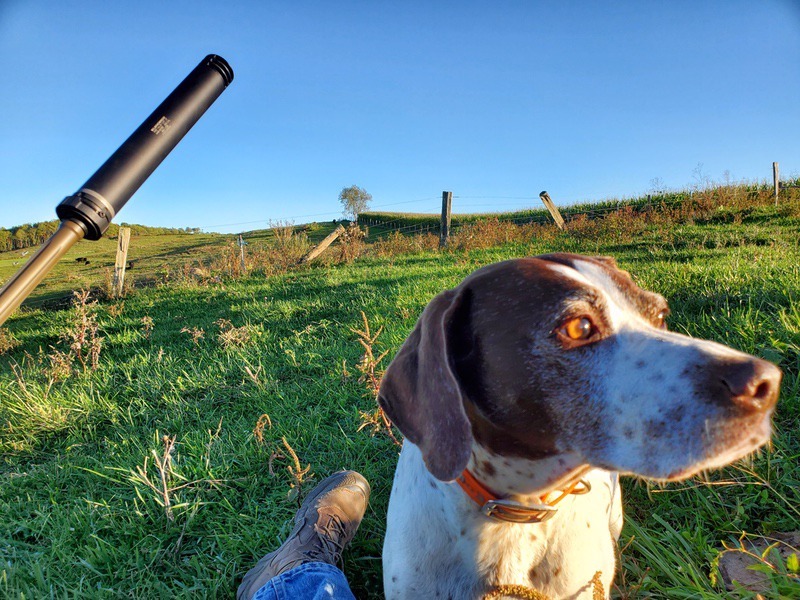
Myth 6: Hunting With Silencers Is Illegal
Hunting with suppressors is legal in most states, but it’s essential to research your local regulations before heading into the field.
State Regulations on Suppressor Hunting
In the 42 states that allow suppressor ownership, many also permit hunting with suppressors. However, some states impose restrictions based on the type of game being hunted. Always check your state’s regulations before hunting with a suppressor.
If you live in one of the eight states that prohibit suppressor ownership, hunting with one is likely off-limits. However, if you live in one of the 42 states where suppressors are legal, or plan to hunt there, be sure to check the specific regulations regarding suppressed hunting.
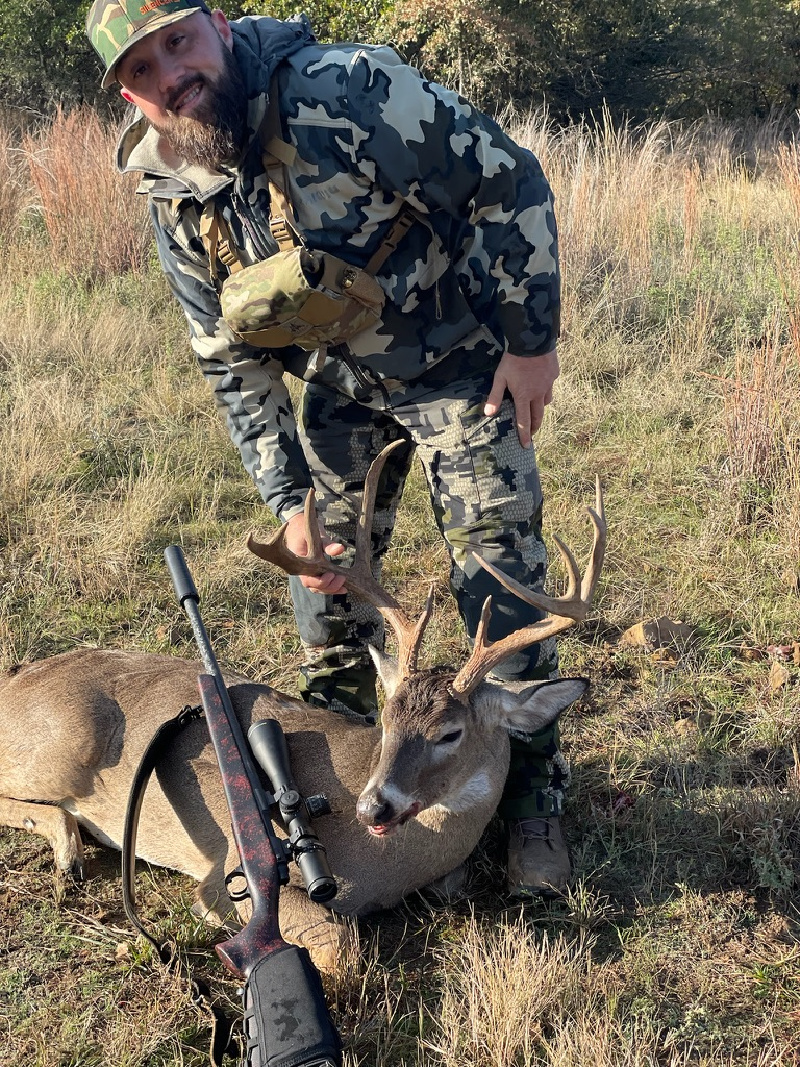
Myth 7: Suppressors Aren't Durable
Suppressors made from durable materials like titanium or stainless steel are designed to withstand heavy use. With proper maintenance, they can last for decades and be passed down to future generations.
This myth surprised me when I first encountered it, as it wasn’t something I had ever heard. But I can see how it developed.
Every firearm part has a lifespan — barrels lose their accuracy with high round counts, headspace wears down with continual use, and even steel frames can crack. Rust is an issue. Plastics degrade. So it makes sense that a silencer would, over time, show signs of use.
The durability of a suppressor largely depends on its construction and intended use. For example, aluminum is less durable than titanium, and rimfire rounds are inherently dirty and prone to fouling, which requires maintenance. Misalignment is especially hard on cans as it can result in baffle strike, which can damage the suppressor.
As for maintenance, welded or sealed suppressors do not require maintenance over the years. They are built to last. Only rimfire suppressors require cleaning to remove the buildup of fouling to maintain their efficacy. I prefer models that are user-serviceable like the SilencerCo Sparrow 22.
The reason that this myth caught me off guard is simple: if you take care of your suppressors they will be passed on to your heirs, and theirs.
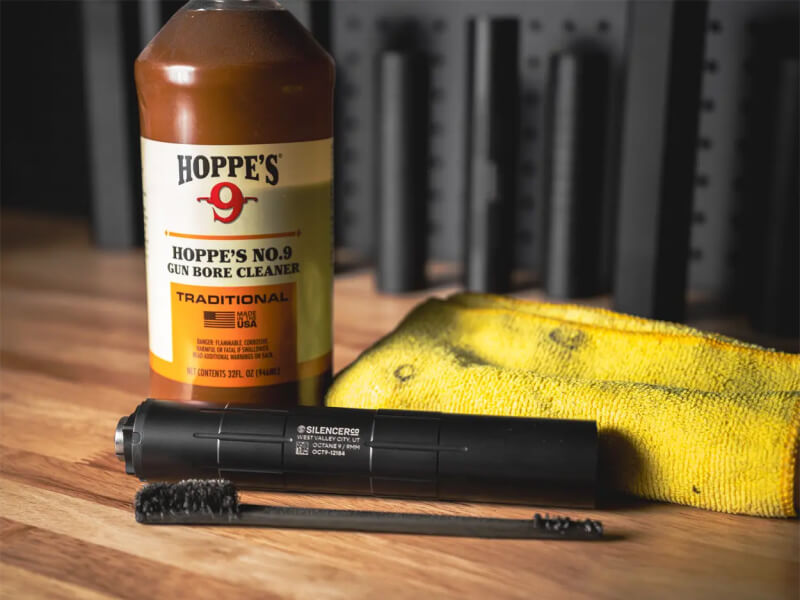
Myth 8: You Need a Special License To Own a Silencer
Another common myth is that you need a special license to own a suppressor. This isn’t true for most civilians.
While the BATFE requires different federal firearms licenses (FFLs) for gun stores that sell suppressors and for manufacturers, the average person doesn’t need any license at all to own one.
There is a kernel of truth here, though. This myth likely stems from confusion about the process of obtaining a tax stamp and undergoing a background check, which some mistakenly interpret as requiring a special permit. In reality, while there are rules governing suppressor purchases and how they’re passed on to heirs, they’re straightforward.
The real issue lies in how myths like this take hold. Myths are societal constructs that can spread unchecked, but they also present opportunities for education. By providing accurate information, we can help dispel these misconceptions.
For more details, do a deep dive into the SilencerCo Blog and the check out the resources at the American Suppressor Association.


